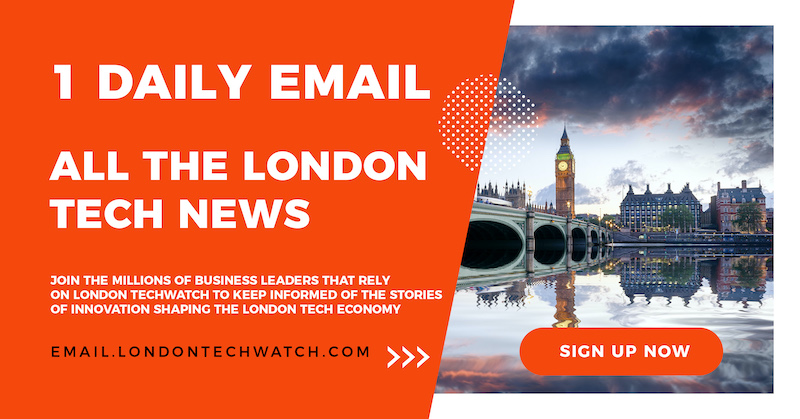Normally, when a startup matures it brings to consider inorganic growth paths of growth. Startups that acquire a number of businesses may soon be operating a holding company across several lines of business. Palta shakes this model up from the onset by focusing on building several brands concurrently focused on the health and wellbeing space. Approaching it this way has several advantages: products within the portfolio are able to benefit from shared user bases, knowledge transfer from what’s working and not working, funding, shared infrastructure, and shared resources. The company currently operates Flo.Health, Zing Fitness Coach, Voir, Prisma Labs, and Simple Fasting; boasting more than 2.4M paid users with the plans to launch and acquire new applications covering more segments. This fluid model allows Palta to operate at the intersection of private equity, venture studio, incubator, and app maker.
London TechWatch caught up with CEO and Cofounder Yuri Gurski to learn more about building a vertically integrated health and wellness cofounding company, the startup’s future plans, recent round of funding, which brings the total funding raised to $2.4M, and much, much more.
Who were your investors and how much did you raise?
Our recent Series B funding round was led by VNV Global, managed by Per Brilioth, and followed by other investors like Target Global, which is our long-term partner. We raised $100 million in this round, and as some new opportunities for strategic partnerships emerged, we may look to extend this amount in another round.
Tell us about your product or service.
Palta is a health tech company with multiple mobile consumer-centric products. Our primary business model, for now, is subscription, and across our portfolio, we have more than 2.4 million paid subscribers. Our free subscribers have exceeded 100 million over the last 12 months, and our monthly free subscriber count is 46 million.
What inspired the start of Palta?
Our team of serial entrepreneurs has had several successful exits, including ones to Facebook, Google, Schibsted, Mai.ru, and other public companies. As a team we were running Haxus, an investment company with no external fundraising, when we decided to shift towards building rather than investing.
With health app leader, Flo Health in our portfolio, it was a natural choice for us to focus on the health & well-being market. In 2019, Target Global and Alex Frolov joined us as an investor and a very hands-on partner, and since then we’ve shifted Palta from an investment vehicle to a technology company.
Our structure is unique because each of our products is run by a team of entrepreneurs and cofounders who lead the product strategy and the day-to-day operations. Palta also takes this one step further by providing financing, business intelligence, and syncing our tech and hiring strategy.
What market you are targeting and how big is it?
We are targeting the global health & well-being market which is estimated to be worth $1.5 trillion. Our flexible structure means we can approach different segments of this market at the same time, but we are currently focusing on mobile, subscription and western markets for now, for the sake of synergy. We are looking forward to expanding our market as we continue to grow.
What’s your business model?
We provide free health & well-being services via mobile, and offer premium subscriptions to those who want more content, features, and personalisation. We believe that subscription is the best fit for the company and for the customers, as free products or in-app products tend to drain subscribers’ attention, data, and money via ‘dopamine mechanics’.
One-off payment doesn’t create the right incentive for the developer to continue working on the product. The subscription model balances the interests of the service provider and the consumer: they pay until they need and they are satisfied with the service.
How has COVID-19 impacted your business?
People became more health-conscious which enabled us to understand what they needed from the healthcare sector, and where the gaps in the market were. The pandemic also meant we had to raise our Series B funding round over Zoom, which was certainly an interesting experience!
What was the funding process like?
Raising $100 million over Zoom amid the pandemic wasn’t easy, but we have a very strong vision for the company and it’s clear that our investors understand that.
What are the biggest challenges that you faced while raising capital?
Our biggest challenge is navigating the talent pool. The pandemic has created an anywhere workforce so when we were deciding where the company should go next geographically, we had a lot to consider – which ended in us choosing London as we can see the talent pool is brilliant here!
Our biggest challenge is navigating the talent pool. The pandemic has created an anywhere workforce so when we were deciding where the company should go next geographically, we had a lot to consider – which ended in us choosing London as we can see the talent pool is brilliant here!
What factors about your business led your investors to write the check?
Strong results were achieved with very little prior financing, along with a clear vision of the future and how we can grow the largest consumer-centric ecosystem of health & well-being products.
What are the milestones you plan to achieve in the next six months?
Hiring many great people in London! Then we are aiming at doubling the annual recurring revenue compared to the beginning of the year, and launching and acquiring some new products.
What advice can you offer companies in London that do not have a fresh injection of capital in the bank?
Find your superpower: something that you do much better than an average company and pitch many times!
Where do you see the company going now over the near term?
We are looking forward to continuing to expand our operations in London.
What is your favourite restaurant in London?
I love Farmacy – it’s a vegan ‘farm’ that cures you.





